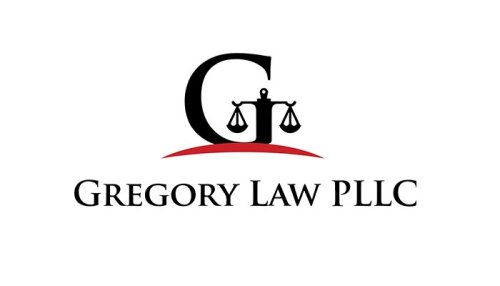Best Adoption Lawyers in Houston
Share your needs with us, get contacted by law firms.
Free. Takes 2 min.
Free Guide to Hiring a Family Lawyer
List of the best lawyers in Houston, United States
About Adoption Law in Houston, United States
Adoption law in Houston, Texas guides prospective parents, birth parents, and agencies through the legal process of creating a permanent parent-child relationship when biological parents are unable or unwilling to parent. The process is regulated by Texas state law and involves several legal steps to ensure that the adoption is in the best interests of the child. Adoption can take many forms including agency adoption, private adoption, relative adoption, and step-parent adoption. Each type involves specific steps and requirements unique to Houston and Texas at large, ensuring the safety and wellbeing of children and their families.
Why You May Need a Lawyer
Adoption can be an emotional and complex process, involving critical legal steps where a qualified adoption lawyer provides invaluable assistance. You may need a lawyer for help with:
- Explaining your adoption options and eligibility
- Preparing and filing required legal documents
- Ensuring the birth parents' rights are properly relinquished
- Navigating interstate or international adoption laws
- Handling agency communications and negotiations
- Resolving contested adoptions or situations involving absent fathers
- Securing adoption finalization through a court hearing
- Advice on post-adoption contact agreements
- Protecting against potential fraud or failed adoptions
- Advising relatives or step-parents through kinship adoptions
A lawyer’s guidance ensures you understand your rights and responsibilities throughout the process, minimizing risks and complications.
Local Laws Overview
Texas adoption law, which governs Houston, sets forth specific procedures and requirements for valid adoptions. Key legal aspects of adoption law in Houston include:
- Eligibility: Prospective adoptive parents may be single or married, must be at least 21 years old, and must pass background checks and a home study.
- Consent: Consent from the child's biological parents is required unless their rights are terminated by a court for reasons such as neglect or abandonment.
- Termination of Parental Rights: The birth parents' legal rights must be terminated before adoption can proceed, sometimes requiring a separate court action.
- Home Study: A home study is typically required, evaluating the adoptive family’s home environment, background, and readiness to adopt.
- Waiting Periods: Texas law requires a minimum waiting period of 48 hours after a child's birth before birth parents can sign a consent to adoption.
- Finalization: Adoption is finalized at a court hearing before a judge, who reviews all documents and facts to ensure the adoption is in the child’s best interest.
- Types of Adoption: Houston recognizes agency adoptions, private or independent adoptions, step-parent adoptions, and international adoptions, each with specific requirements.
- Post-Adoption Communication: Texas allows post-adoption contact agreements which may allow continued contact between the child and birth family after the adoption.
Frequently Asked Questions
What are the main types of adoption available in Houston?
The main types are agency adoption, private/independent adoption, step-parent adoption, and relative or kinship adoption. International adoption is also an option but follows additional federal requirements.
Who is eligible to adopt a child in Houston?
Generally, any legal adult over 21 can adopt, regardless of marital status, but they must pass background checks, complete a home study, and demonstrate financial and emotional ability to care for a child.
How long does the adoption process take in Houston?
The timeline varies widely depending on the type of adoption. It can range from a few months for step-parent or relative adoptions to one year or longer for agency or international adoptions.
Do birth parents have to consent to an adoption?
Yes, unless their parental rights have been terminated by a court due to abandonment, neglect, unfitness, or other statutory grounds.
What is a home study and is it always required?
A home study assesses the adoptive parents’ home and background to ensure a safe and supportive environment for the child. It is required in almost all adoptions except for some relative adoptions.
What rights do adoptive parents have after finalization?
Once finalized, adoptive parents have all legal rights and responsibilities for the child, identical to biological parents.
Can adoption records be accessed in Houston?
Texas adoption records are generally sealed and can only be accessed by court order. However, adults adopted as children in Texas may request access to their original birth certificate under certain circumstances.
Can an adoption be challenged or reversed?
Adoptions may be contested if proper consent or procedures were not followed, but once finalized, they are generally irreversible except in rare cases involving fraud or duress.
Are open adoptions allowed in Houston?
Yes, Texas law permits open adoptions, which may include agreements for ongoing contact between the adoptive family and birth family, though these agreements are generally not enforceable by law.
How do I start the adoption process in Houston?
Start by contacting an adoption agency or attorney to discuss eligibility and the best type of adoption for your situation. A lawyer can guide you through orientation, paperwork, and court proceedings.
Additional Resources
If you are considering adoption in Houston, the following organizations and resources may be helpful:
- Texas Department of Family and Protective Services (DFPS)
- Harris County Adoption Information Office
- Texas Foster Family Association
- Houston Bar Association - Family Law Section
- AdoptUsKids (for public adoption resources)
- Licensed private and public adoption agencies operating in Houston
- Local support groups for adoptive and birth parents
Next Steps
If you are considering adoption in Houston and need legal help, start by researching and selecting a qualified family law attorney or licensed adoption agency. Schedule a consultation to discuss your circumstances and receive personalized guidance. Gather all necessary documents such as identification, financial records, and any prior legal paperwork. Attend required training or orientation sessions and be prepared for a home study if needed. Throughout the process, rely on your attorney for updates and to ensure compliance with all legal requirements. Begin the process as early as possible to allow time for each step, and do not hesitate to ask questions to ensure you understand every aspect of your adoption journey.
Lawzana helps you find the best lawyers and law firms in Houston through a curated and pre-screened list of qualified legal professionals. Our platform offers rankings and detailed profiles of attorneys and law firms, allowing you to compare based on practice areas, including Adoption, experience, and client feedback.
Each profile includes a description of the firm's areas of practice, client reviews, team members and partners, year of establishment, spoken languages, office locations, contact information, social media presence, and any published articles or resources. Most firms on our platform speak English and are experienced in both local and international legal matters.
Get a quote from top-rated law firms in Houston, United States — quickly, securely, and without unnecessary hassle.
Disclaimer:
The information provided on this page is for general informational purposes only and does not constitute legal advice. While we strive to ensure the accuracy and relevance of the content, legal information may change over time, and interpretations of the law can vary. You should always consult with a qualified legal professional for advice specific to your situation.
We disclaim all liability for actions taken or not taken based on the content of this page. If you believe any information is incorrect or outdated, please contact us, and we will review and update it where appropriate.












